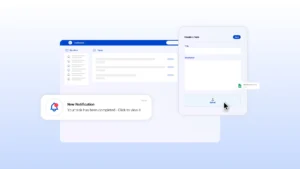An AdWords campaign is a Google campaign usually made up of a few promotions. Every promotion serves diverse messages, depending on the keyword the user will type in Google’s search engine. Usually, advertisement campaigns incorporate the product type, gadget, and location. For instance, A furniture store selling seats and tables can decide to have diverse advertisement lobbies for every one of its items.
Managing a Google Ad campaign is not difficult, but it is pretty time-consuming. The following need to be catered to while working on any Google Ad campaign.

Follow Best Practices for Your Google Ads Campaign Structure
To make any campaign successful, there needs to be a structure that must be followed. A Google Ad campaign has its hierarchy.
Account: Your record directs all your promoting endeavors. It is where you update your data and payments, make most of your current missions and assess your general promoting execution. You sign in to your record through your Google account.
Campaign: This is where you feed your spending plan, ongoing campaigns, and settings for every campaign, incorporating your promotion content, advertisements, and catchy words to be used in the ad.
Ad group: Your advertisement group contains your promotions and focuses on keywords. It is particular to a topic in your general mission – for example, emergency mechanic services, nearest shoe shop, etc. While being similar, your advertisement ought to have contrasts. You will promote formal yet comfortable shoes if your advertisement relates to shoes.
Ads: Your advertisements include your Ad duplicate. You can make different advertisements to test and figure out which ones stand out enough to be noticed, thus encouraging activity from buyers. A free offer, for instance, may drive conversions more than a simple ad that tells visitors about your product.
Keywords: The keywords you use in the Ad groups will include how it will prompt the advertisement to appear when a user’s search term is related to it. These keywords should mesh well with the subject of your advertising.
When managing any Google Ad campaign, you need to focus more on your keywords, Ad group, and campaign, as these are the essential heads to make any campaign successful in the long run. These have a direct impact on the performance and ROI of an Ad.
Audit Your Google Ads’ Budget and Bids
Sometimes, your campaign type and bids may not target explicit keywords. For instance, if you are running a campaign for remarketing purposes, you may focus on clients in your remarketing audience instead of adding catchphrases.
Businesses pay $1 to $2 per click when running ads on Google Ads. This baseline can help you with making a budget for your ad campaign. Moreover, in Google Ads, there is an option to set a daily budget for an ad, and if you multiply this number by 30, that will be your monthly budget for ad spending.
If you have a current campaign running, Google will frequently give a day-by-day financial plan, like they are offering suggestions. These proposals regularly incorporate understanding what your organization could procure, such as extra clicks, if you increment your spending plan. You do not need to follow these proposals, but you can utilize them to understand your mission execution since these suggestions come from Google Ads information. Use what Google imparts to you to change what you are focusing on, and the sky is the limit from there.

Analyze and Refresh Your Keyword Targeting
While advertising with Google Ads, almost every other business uses keywords to target the right audience; however, you can also benefit by using demographics such as age, location, and gender, as usually, ad groups are based on keywords. Thus, keywords are an essential part of Google Ads campaign management.
It would be best to keep the keywords up to date to obtain the best results as people keep changing the phrases they use. For example, they search “best smartphones” and “top current smartphones.”
There are ways to assess the performance of keywords that you are currently using with the help of the Google Keyword Planner. This tool also helps you find new and trendy keywords to target. It is highly recommended for Google Ad campaign management because of its several options.
In conclusion, Google Ad campaign management can be time-consuming, especially when you have other things on your plate. However, keeping it on the right track and doing everything discussed above can make it easy and manageable alongside your other work. Proper structure, keywords, and a spending plan should be focused on more as they directly link to your ad campaign’s performance.


